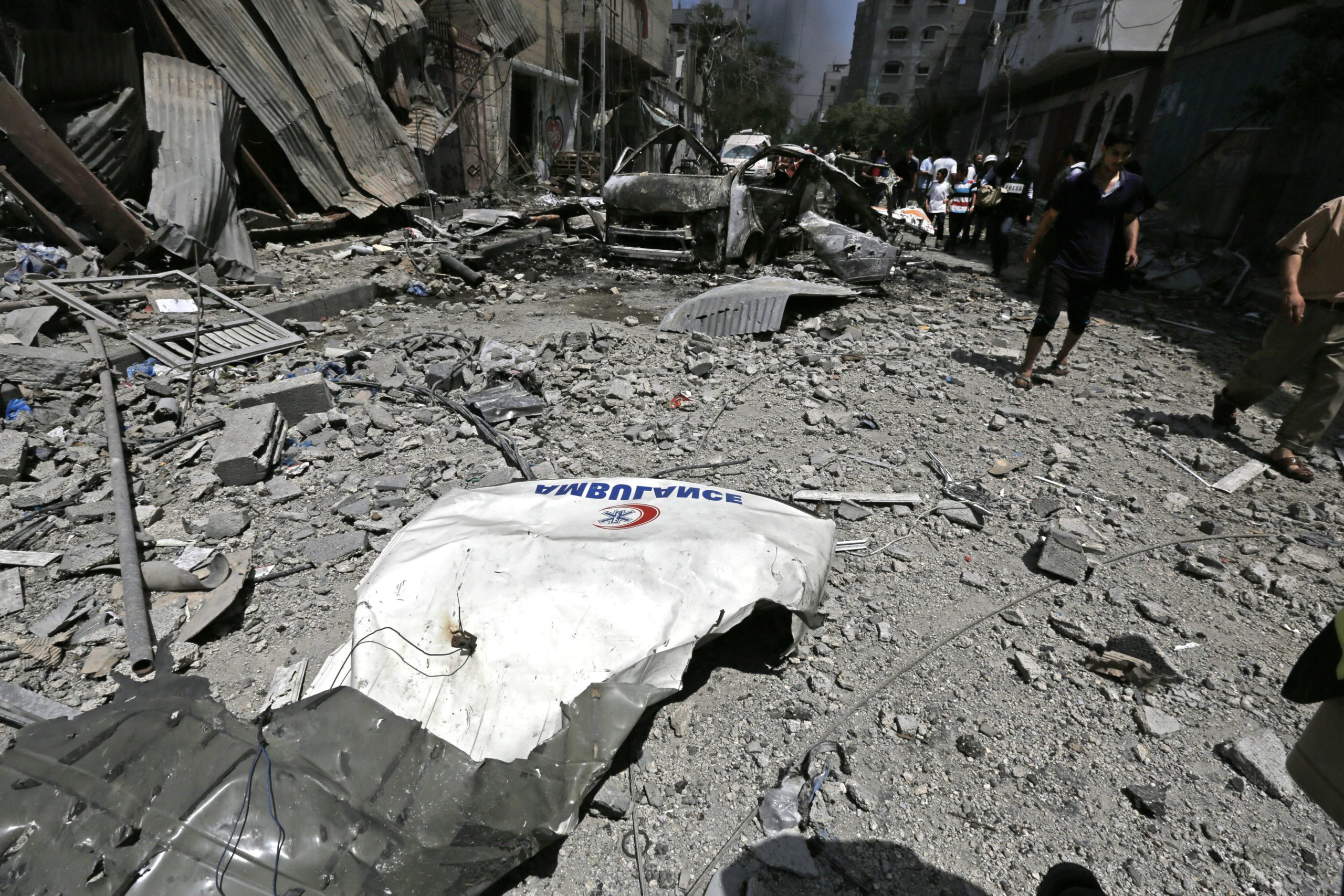
“I never imagined that I’d witness what I am seeing now,” says Moeen Abu Al Eish, a paramedic and ambulance driver at one of Gaza’s biggest hospitals.
With the crisis in Gaza mounting, hospitals are struggling to cope with the growing influx of casualties. Three quarters of the dead and wounded are civilians, including many women and children. In the past few days, it’s estimated one child an hour is killed in Gaza as the Israeli ground offensive escalates.
“I fear for my own family,” says Moeen. As he drives his ambulance to the scene of airstrikes and shelling he sees the dead bodies of women and children in the streets — many with horrific wounds.
“I have to fight off thoughts that these children could be my own,” he says.
Medical teams are working around the clock to save lives and treat injuries. Oxfam is delivering safe water to Al Shifa hospital, which has been overwhelmed with casualties. Many hospitals and healthcare facilities have also come under attack. At least 18 medical facilities were hit by Israeli airstrikes and shelling — including hospitals, ambulances and health clinics. 26 health workers from the Palestinian Red Crescent were injured while trying to respond.
“So far three of our ambulances were attacked and several of my colleagues were severely injured,” says Moeen. “But this doesn’t stop us or slow us down. No amount of danger or threat to our lives can deter us from doing our job.”
Dr Kamal Khattal works at another hospital that was hit by shelling. “In a second, the situation inside the hospital became so chaotic. Injured people and medical staff were terrified; everyone started to run to find a place to shelter. We had to evacuate all the hospital except the emergency department. Some vital units stopped operating… but we had no option but to continue to work in the emergency unit to treat the dead and injured. We had 15 medical staff among the injuries. This was the last thing I expected.”
Oxfam condemns all violence against civilians by all sides, including ongoing rockets fired from Gaza into Israel and Israeli military actions in Gaza. We call on all sides to respect international humanitarian law.
Oxfam also provides fuel and medicine to Al Awda hospital, the only one in north Gaza with a specialist unit for pregnant women. Many hospitals face severe shortages of medical supplies and fuel. Damage to electricity lines means people in Gaza are suffering from power cuts of 20 hours a day, making it extremely difficult to pump water and continue life-saving operations. Over a quarter of essential medical drugs are currently out of stock.
Moeen says the situation is getting worse by the day. “I put all my energy and efforts to try and save civilians, but there is little I can do when I arrive at a bombed site and motionless bodies are all over the place and on the streets. I try to transport the injured to hospital as quickly as possible, knowing that at any moment the site could very possibly be attacked again.
“I thank God every moment that I am still alive. I’ve experienced several wars in my lifetime but nothing could have prepared me for this.”
Our International Crisis Fund ensures we’re able to respond quickly when a natural or man-made emergency occurs around the globe.
